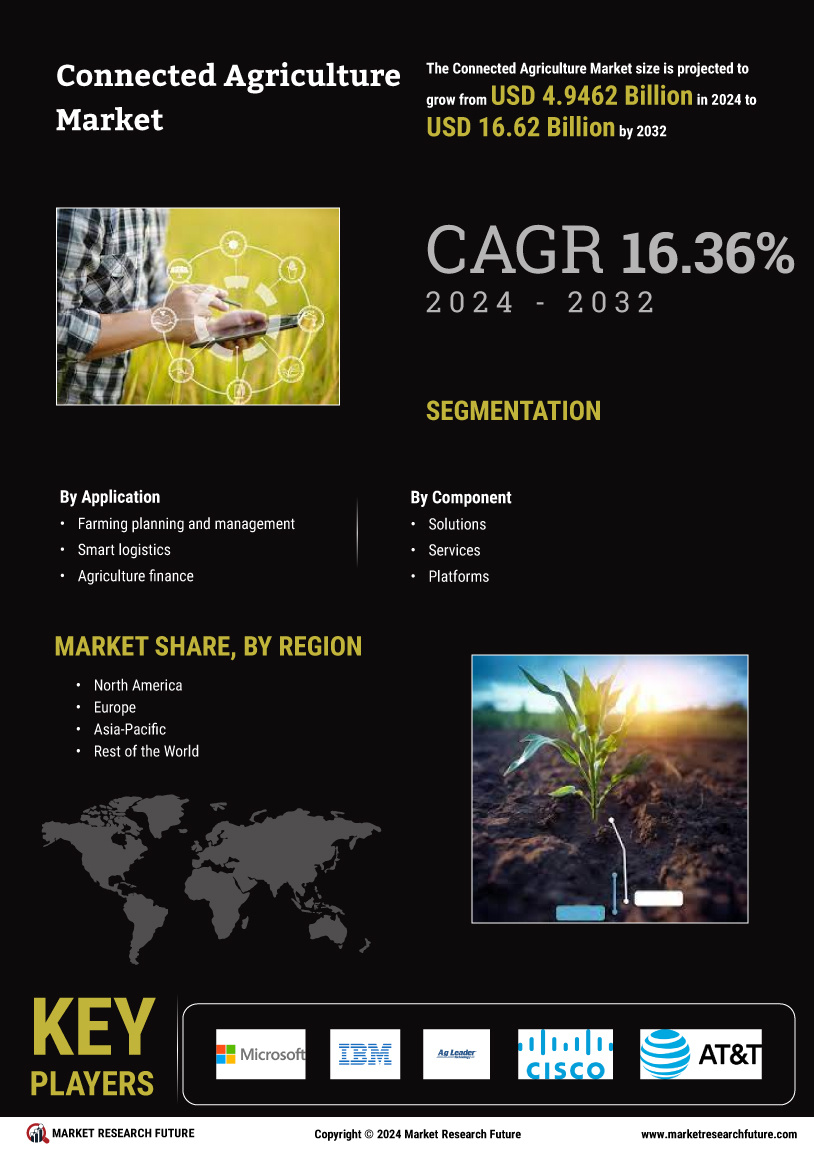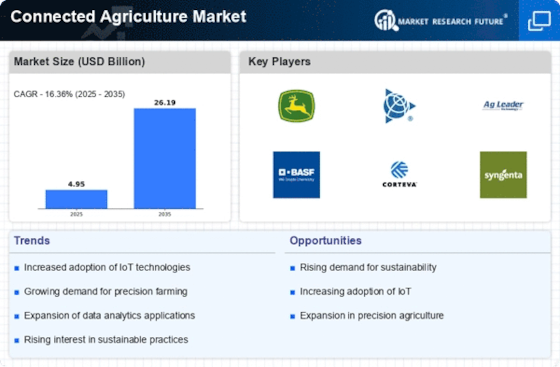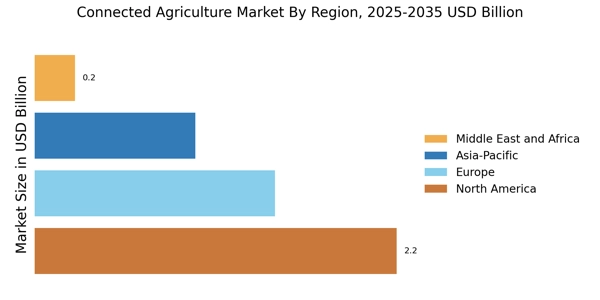Integration of Big Data Analytics
The Connected Agriculture Market is increasingly influenced by the integration of big data analytics into farming practices. The ability to analyze vast amounts of data from various sources, including weather patterns, soil conditions, and market trends, empowers farmers to make data-driven decisions. This analytical approach enhances operational efficiency and reduces risks associated with farming. Reports indicate that the use of big data in agriculture could lead to a 15% increase in crop yields. As more farmers recognize the value of data analytics, the demand for connected agriculture technologies is expected to rise, further propelling market growth.
Government Initiatives and Support
The Connected Agriculture Market benefits from various government initiatives aimed at promoting agricultural innovation and sustainability. Many governments are implementing policies that encourage the adoption of smart farming technologies. For example, subsidies for IoT devices and funding for research in agricultural technology are becoming more common. These initiatives not only support farmers in adopting new technologies but also aim to enhance food production and sustainability. As a result, the market is likely to see increased participation from both public and private sectors, fostering a collaborative environment for innovation. This support is crucial for the long-term growth of the connected agriculture sector.
Increasing Demand for Food Security
The Connected Agriculture Market is driven by the escalating demand for food security, particularly in regions facing population growth and climate change challenges. As the global population is expected to reach nearly 9 billion by 2050, the pressure on agricultural systems intensifies. Connected agriculture solutions, such as smart irrigation and crop monitoring systems, are essential in addressing these challenges. They enable farmers to maximize yields while minimizing waste and resource consumption. Reports indicate that investments in connected agriculture technologies could lead to a 30% increase in food production efficiency. This growing emphasis on food security is likely to propel the market forward.
Rising Awareness of Sustainable Practices
The Connected Agriculture Market is witnessing a growing awareness of sustainable agricultural practices among consumers and producers alike. As environmental concerns become more pronounced, there is a shift towards methods that reduce carbon footprints and promote biodiversity. Connected agriculture technologies, such as precision farming and resource management systems, play a pivotal role in this transition. They allow farmers to implement sustainable practices that not only benefit the environment but also enhance profitability. Market data suggests that the adoption of sustainable practices can lead to a 20% reduction in resource usage. This increasing focus on sustainability is likely to drive demand for connected agriculture solutions.
Technological Advancements in Agriculture
The Connected Agriculture Market is experiencing a surge in technological advancements that enhance agricultural productivity. Innovations such as precision farming, drones, and automated machinery are becoming increasingly prevalent. These technologies enable farmers to monitor crop health, optimize resource usage, and improve yield. For instance, the integration of IoT devices allows for real-time data collection, which can lead to more informed decision-making. As a result, the market is projected to grow significantly, with estimates suggesting a compound annual growth rate of over 10% in the coming years. This trend indicates a shift towards more efficient farming practices, which is likely to reshape the agricultural landscape.

















